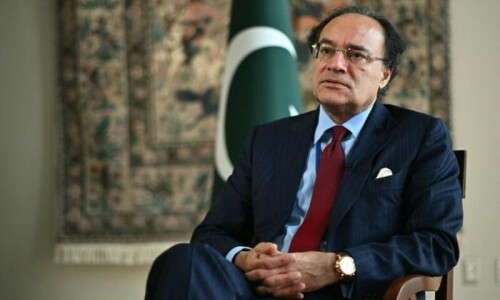ISLAMABAD: Finance Minister Muhammad Aurangzeb said that Pakistan’s foreign exchange reserves would reach “anywhere between $9 to $10 billion” by the end of June.
Addressing the inaugural session of the seventh ‘Leaders in Islamic Business Summit’ in Islamabad, he said the expected position in June would be a “much better position in terms of where we were [in the previous year]”.
Pakistan’s forex reserves crossed the $8bn mark again last month after they fell below it in late February.The minister further said the International Monetary Fund (IMF) should not be seen as “an end, but a means to an end”.
Regarding the current Stand-By Agreement (SBA), Aurangzeb deemed it important to have entered the programme: “That was absolutely critical that we did that as a country for a reason. There is no plan B. Plan B is unimaginable when you are in a situation where I said you are down to 15 days of import cover.”
The finance minister also recalled that the country was praised during his recent visit to Washington for showing the “necessary discipline needed to go through the programme”.
He stated that they initiated discussions with the Fund for a longer and larger programme for two reasons: to “bring permanence in this macroeconomic stability” and execute the economic structural reform agenda.
“I’ve kept saying that the country doesn’t need policy prescriptions; we know the what and why for the longest time, we just don’t do it,” Aurangzeb said, adding that the country needed to get into an “execution mode”.
“We need to move towards sustainability,” he stressed, warning that otherwise, reforms could not be implemented.Aurangzeb also termed the energy equation a “huge priority” when it came to the sustainability of the reforms, whether they pertained to power or petroleum sectors.
Highlighting the tax challenges, the finance minister said, “One is a policy and enforcement gap and the other is obviously bringing in the undertaxed and the untaxed sectors into the net.”
He also noted that Rs1.7 trillion worth of litigation was pending with tax tribunals. “I repeatedly say we need timely decisions whether it’s a small company or a big country. Timely decisions and timely executions,” the minister underscored.


